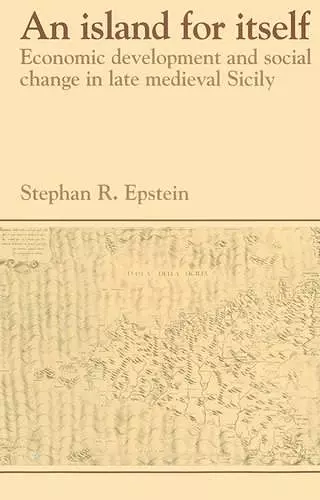An Island for Itself
Economic Development and Social Change in Late Medieval Sicily
Format:Paperback
Publisher:Cambridge University Press
Published:13th Nov '03
Currently unavailable, and unfortunately no date known when it will be back

Late medeival Sicily is shown to have been neither underdeveloped nor dependent on foreign trade.
This study of late medieval Sicily develops a critique of theories of dependence through trade, and a new interpretation of the late medieval economy. Following the Black Death, many institutional and social constraints on commercialization were relaxed throughout western Europe as a result of social conflict and demographic change.This study of late medieval Sicily develops a critique of theories of dependence through trade, and a new interpretation of the late medieval economy. It thus addresses current debates on the origins of modern Italian economic dualism, and on the transition from feudalism to capitalism in early modern Europe. Dr Epstein argues that economic development during this period was shaped largely by regional political and institutional structures which regulated access to markets. Following the Black Death, many institutional and social constraints on commercialization were relaxed throughout western Europe as a result of social conflict and demographic change. Peasants became more commercialized; economic growth occurred through regional integration and specialization. The Sicilian economy also expanded and became increasingly export-oriented. although only a small proportion of its output was shipped abroad before 1500. Late medieval Sicily is thus shown to have been neither underdeveloped nor dependent on foreign manufactures and trade.
ISBN: 9780521525077
Dimensions: 216mm x 140mm x 27mm
Weight: 610g
484 pages